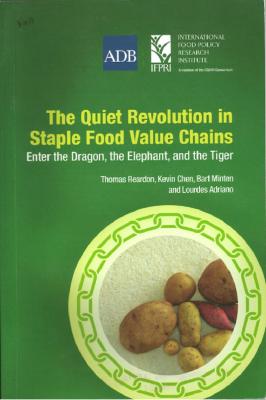
With food security in mind, the Asian Development Bank (ADB) aims to improve the food value chains to guarantee that there are enough and affordable food supplies in the region. As such, ADB commissioned the International Food Policy Research Institute to evaluate the staple food value chains in Bangladesh, the People`s Republic of China and India.
The study sought to generate food value chains that are more responsive to rising food demand and supply constraints by identifying potential areas for reform. Rice and potato are the main grain and vegetable staple food in these countries, respectively. Hence, the study focused on these value chains.
The results of the said study is on the book “Quiet Revolution in Staple Food Chain.” It provides a systemic and rigorous review of the structural transformation pathways of these food chains and the catalytic roles that governments, the private sector, civil society and international development institutions can play in the process (Lohani and Fan, p. xi, 2012).
Specifically, the publication discusses: an introduction to food value chains; sector overview of Bangladesh, People’s Republic of China, and India; transformation of rice and potato value chains in terms of farm, mill or storage and trader segments, retail, rewards, costs and margins; as well as some policy implications of the structural changes.
For more details about this research and information on food staple value chains, you may read or borrow this publication at the Agriculture and Fisheries Knowledge Center of the Agricultural Training Institute Central Office in Diliman, Quezon City.
